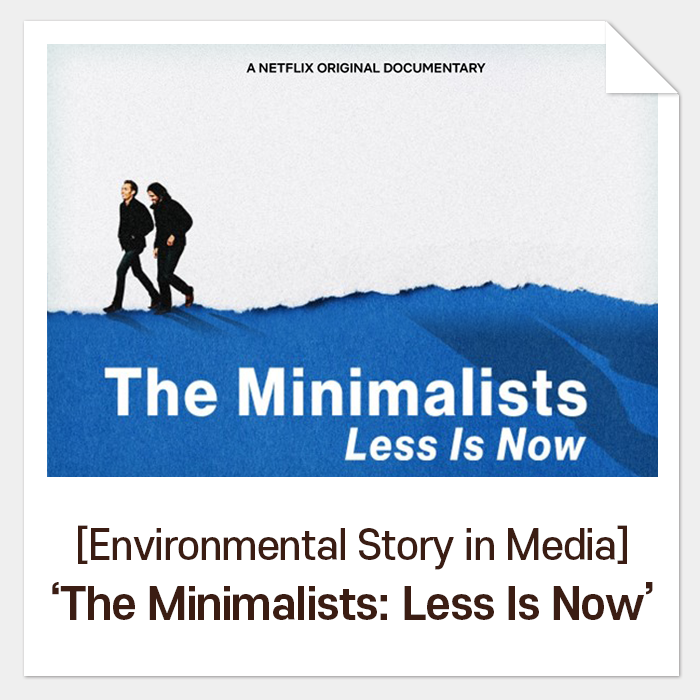[Special Article] Everything About Plastic and Our Choices for Tomorrow 6, The final (Awareness and Actions have to Become One)
Since last March, we have
covered the many aspects of plastic in over 6 articles. The articles include information
on how plastic was born, its golden ages as the lead role of industrialization,
how it ended up being a fatal threat to mankind and the environment, and its
problems and solutions.
We would like to conclude this series by discussing our present and our future in this age of ‘ban plastic”
Too much responsibility on the consumers
You probably went through your trash yesterday too, like every other day, dividing the plastic milk cartons and plastic strawberry containers, and all the plastic disposable takeout containers, cleaning them and separating them from cookie wrappers. But here we face several questions. Why is the recycling rate for plastic still only 20% when we work so hard to recycle plastic? (Which will drop even more when the rate of separating and putting recyclable materials is considered, which is 45%, and even lower when energy conversion rates is considered.) Why does the consumer have to memorize the separation of the recyclable waste table and fret about HDPE, PP, PS, PVC, and OTHER? Why is the consumer burdened with all this? Should the consumer have to pay for the goods and have to handle the disposal too? How efficient is this in solving environmental problems? With all the trouble you go through every day to recycle, isn’t the recycling rate too low?
Hoping that ESG becomes the actual pattern of behavior for
companies
In the past few years, ESG
(Environment, Social, Governance) has become the main slogan for companies and
governments all over the world. But just as the term “eco-friendly” had been
used for company marketing with no actual relation to eco-friendly management
in the past, there are concerns that ESG is becoming the next “eco-friendly”.
Early this year there was a lot of criticism about the Ministry of Trade,
Industry, and Energy’s K-ESG evaluation, claiming that the companies which
received the A grade were not evaluated thoroughly. Also, the budget related to
climate and environment of Seoul, which has vowed to become a ‘carbon neutral
city’ in 2050, has been drastically cut, yet again drawing criticism.
Governments and companies
claiming to advocate ESG management should look beyond market size and market
efficiency and see how products supplied to the market are affecting the
environment and the ecosystem, and take responsibility for it. In order to do this,
transparent management, major structural reform, and diverse members are
needed.
Hoping for integrated and realistic regulations
Many environmental groups and
research institutes have endlessly raised issues on the fatal threats of
disposable plastic packing materials, but due to covid, Korea’s has increased
by 16% from 734 tons daily in 2017 to 850 tons in 2020. The government is
operating the EPR (Extended Producer Responsibility) system, making
manufacturers produce products that are recyclable from the beginning, and also
taking charge of recycling the waste that comes after. For this, thousands of
Korean companies are paying recycling contributions. But occasionally we come across news about companies
that sort waste refusing to receive waste, or go bankrupt due to financial
difficulties.
Why is this happening when
thousands of companies are paying recycling contributions? We can guess that
probably the contributions are not used properly or the contributions were not
planned realistically. There are many opinions in the industry that the support
system for contributions within the EPR system needs to be operated properly.
In other words, the support system for distribution needs to be designed again,
for companies to actually be able to collect, transport, and sort.
Due to covid, Untact consuming has sharply increased and the use of disposable products has surged. Under this current situation, the delay and vagueness of eco-friendly regulations are driving the eco-friendly market to Green-Washing. ‘Eco-friendly’ has become the competitiveness for companies and countries. Countries should now increase the percentage of resource circulation, reinforce systems to develop actual eco-friendly products that are harmless to the ecosystem and kick out harmful products from the market.
What we can do
With the environment polluted
and the ecosystem threatened by plastic, what can we do as individuals?
Companies are passive and the government is slow to take measures, but still,
there are actual things we can and must do, like the “20 suggestions to help
protect the Earth” by Tyler.
Based on our experiences
through covid, we have to change our awareness and ways of life. We should be
able to distinguish green-washing, and urge the companies and the government as
consumers and also people of the nation. When we do this, other consumers will
also support companies with true ESG management, and many companies will focus
on developing eco-friendly technology, which will be the result of our
collective efforts to change social behavior. Of course, this will take much
time and effort, but if we can make it happen, won’t we be remembered as a good
generation? Ten people taking one step each will be much more helpful in making
these changes than one person’s ten steps.
[Special
Article] Everything About Plastic and Our Choices for Tomorrow Series
|
<Environment
groups for ban plastic, home and abroad> |
||
|
Environmental
|
Project |
Contents |
|
WWF Korea |
- Offers
guidelines for plastic reduction |
|
|
Green Korea |
- Monitors
policies for promoting the recycling of containers for cosmetics and taking
action |
|
|
Greenpeace |
- Published
report on the consumption, disposal, and recycling of plastic in Korea |
|
|
Korea
Federation for |
- Raise
awareness on the use of unnecessary plastic and request companies to change |
|
|
Clean Ocean
Project |
- Raise
awareness on marine pollution |
|
|
Earth Day
Network |
-
Information on how plastic pollution affects mankind and the ecosystem |
|







Comments
Post a Comment